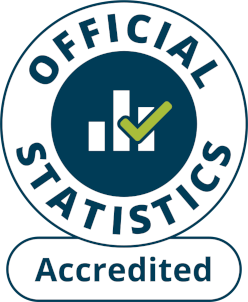A level and other level 3 results: 2010 to 2011 (provisional)
Provisional information on 16- to 18-year-olds' A level and other level 3 results at the end of their final year.
Applies to England
Documents
Details
Reference Id: SFR27/2011
Publication Type: Statistical First Release
Publication data: Local Authority data
Local Authority data: LA data
Region: England
Release Date: 20 October 2011
Coverage status: Provisional
Publication Status: Published
This statistical first release (SFR) provides the earliest information on the overall achievements of young people in GCE and applied GCE A level examinations and other equivalent qualifications. This information is based on data collated for the 2011 school and college performance tables and covers achievements in all level 3 qualifications approved under Section 96 of the Learning and Skills Act (2000). The Department for Education performance table points are used to calculate point scores for all level 3 qualifications. See technical notes for more details.
The institution level 2011 achievement data presented in this SFR is currently in the process of being checked by schools and colleges. Revised figures will be published in January 2012 accounting for amendments made by schools up until the publication of the performance tables.
Key points
All comparisons below are made against final (revised) figures for the academic year 2009 to 2010 published in January 2011 (see ‘related publications’).
For students aged 16 to 18 in schools and colleges entered for all level 3 qualifications in 2010 to 2011 (table 1a):
- 92.7%of candidates achieved passes equivalent in size to at least 2 GCE or applied GCE A levels, compared with 94.8% in the 2009 to 2010 academic year.
- The average point score per candidate entered for level 3 qualifications in the year 2010 to 2011 was 733.1. This average is lower than the figure of 744.8 for the year 2009 to 2010.
- The average level 3 point score per entry is equivalent to just above a grade C at A level and has increased to 215.5, compared to an average of 214.4 in the year 2009 to 2010. A grade C at A level yields 210 points.
- Female students achieved higher average point scores than males. The average total points achieved by female students were 31.9 points higher (748.1 compared to 716.2 for males) and the average points per entry were 6.8 points higher (218.7 compared to 211.9 for males).
- A slightly greater percentage of female students achieved 2 A level passes or equivalent (93.0% compared to 92.4% for males).
For students aged 16 to 18 in schools and colleges entered for GCE or applied GCE A level and double awards in the year 2010 to 2011 (table 1a):
- 12.8%of GCEor applied GCE A level and double award candidates achieved 3 or more A* or A grades at A level, which is unchanged compared with the 2009 to 2010 year.
- A slightly greater percentage of males achieved 3 or more A grades or above at A level (13.1% compared to 12.5% for females)
- 20.4% of candidates achieved AAB or better passes at GCE or applied A levels or double awards. A similar percentage of female students achieved AAB or higher when compared to males (20.8% against 20.0%).
David Bartholomew
0370 000 2288
